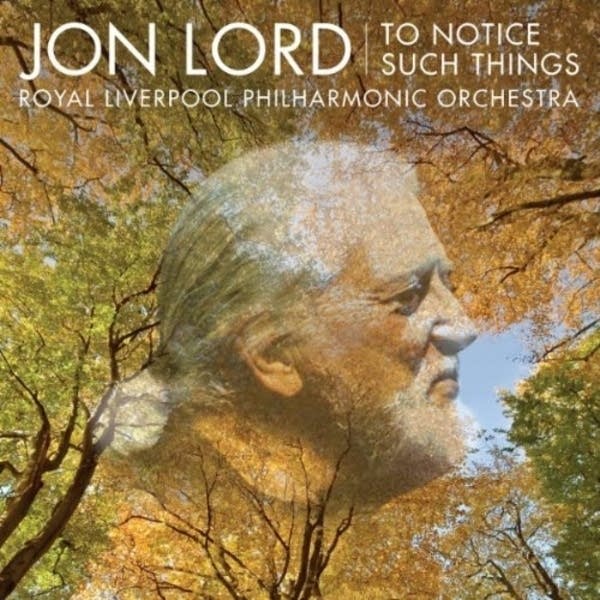
Jon Lord never thought he wanted to be a professional musician. "I think when I was about 14," he says, "I did say to my mother when she said, 'Do you have any idea of what you want to be?' I said, 'I want to be a conductor.' She thought a bus conductor, so she was momentarily disappointed."
Jon Lord no doubt made his mother proud when he became the founding member of the British rock band Deep Purple. During those early years in the band, Jon Lord was also composing large-scale works for orchestra, and he's been dabbling in classical music ever since. His most recent recording, "To Notice Such Things," features several classical miniatures and a suite for flute and string orchestra written in memory of a dear friend, Sir John Mortimer.
"He was one of the great barristers of his time and his heyday would be the late '60s and on into the '70s and early '80s. He was a Q.C., a Queen's Counsel, and I suppose most famous as a barrister for being absolutely resolute about defending free speech. He was 70 when I met him, but we became fast friends and remained so until his passing."
About a month after Sir John Mortimer's death in 2009, Jon Lord was commissioned to write a piece for flute and string orchestra. He immediately thought of music he composed for Mortimer to use on stage.
"I went along to a couple of these shows. They were called 'Mortimer's Miscellany.' And he would sit on stage, and he would have an actress on each side of him and a pianist and a flute player. And he would hold forth on life, love and the law, using his own memories and anecdotes which were utterly hilarious. He would illustrate his thoughts with reading from poetry and prose that had caught his eye and ears over the years. One day the lady who played piano for him was taken unwell and he said to me, 'I don't suppose you'd come and play for me tonight?' And so I did, and then he said, 'I don't suppose you would like to compose any little bits and pieces, would you?' And of course I was happy to do so. And those little bits and pieces later on, many years later, formed the basis of the suite for flute and piano and strings which became 'To Notice Such Things.'"
It was challenging for Jon Lord to be so close to the subject matter behind the music, because there's a fine line between sentiment and sentimentality. His task was to show both the comical side as well as the nostalgic side of his friend. He enlisted the help of the Royal Liverpool Philharmonic and flutist Cormack Henry. "John had a light tenor voice and a tinkle of a laugh," Lord explains, "so the flute perfectly represents his voice and his way of laughing. There's a movement called 'At Court,' and in the last minute of that I tried to represent John's voice."
Later in his life, John Mortimer began using a cane and then a wheelchair. However, in the fourth movement of this suite, we hear Sir John pull himself up out of his chair and his cane becomes his dancing partner in "The Stick Dance."
According to Jon Lord, Mortimer also loved the poetry of the swashbuckling, romantic Englishman Lord Byron. Lord recalls, "Byron has a line, that when you take out all the trouble and fighting at the end of it all, the pleasant bits is no more than the summer of a dormouse." Mortimer used "the summer of a dormouse" as the title for the last volume of his three-volume autobiography. To recall Mortimer's last days, Jon Lord titled the fifth movement of this suite "The Winter of a Dormouse." Here the flute sighs, cries, even pleads out of frustration and loss.
The title of Jon Lord's suite, and of this new recording, "To Notice Such Things" comes from a Thomas Hardy poem. John Mortimer always thought those words would make a wonderful epitaph for his father, or for himself. Jeremy Irons narrates this poem in the final movement with Jon Lord's simple piano accompaniment. "It's a delightful poem about what will people say about me after I'm gone," says Jon Lord. "It ends with, will they say he is a man who noticed such things, like animals, or a starry sky, or a red sunset."
Love the music?
Show your support by making a gift to YourClassical.
Each day, we’re here for you with thoughtful streams that set the tone for your day – not to mention the stories and programs that inspire you to new discovery and help you explore the music you love.
YourClassical is available for free, because we are listener-supported public media. Take a moment to make your gift today.
Your Donation
About New Classical Tracks®
Host Julie Amacher provides an in-depth exploration of a new classical music release each week.
Subscribe on Apple Podcasts, TuneIn, Radio Public, or RSS.












